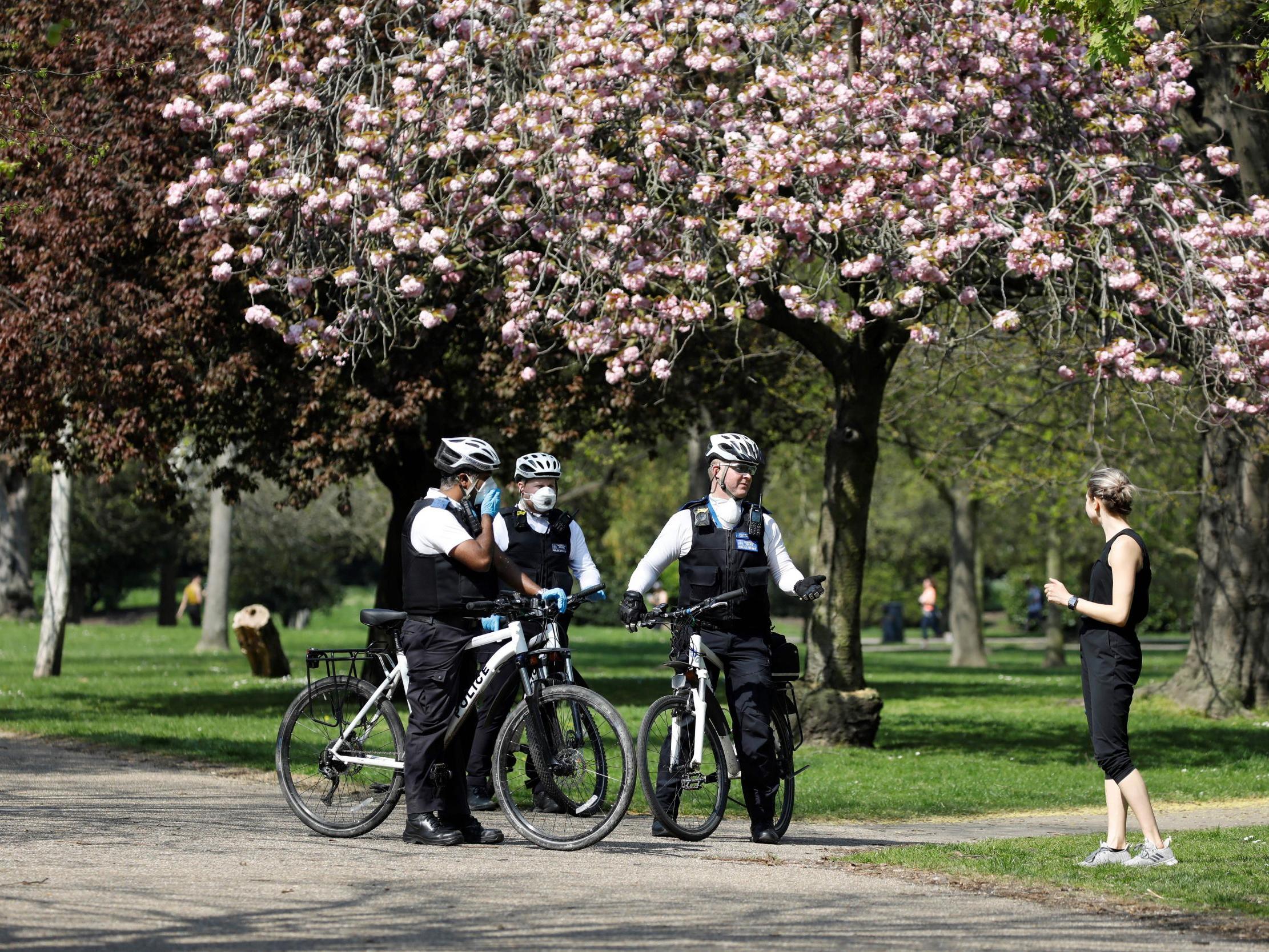'Rule of six' coronavirus laws were published minutes before they came into force as parliament bypassed yet again
The government has bypassed parliament for numerous coronavirus laws since March but the ‘urgency’ argument is wearing thin, Lizzie Dearden writes

Complex new laws underpinning England’s new “rule of six” coronavirus restrictions were not published until minutes before they came into force.
The late appearance of the new Health Protection Regulations shortly before midnight on Sunday sparked fresh anger over the way ministers are introducing laws to combat the pandemic.
It meant that police officers had no guidance on how to enforce the new restrictions on the first day they were in effect, while there were indications of widespread public confusion over the numerous exemptions to the law.
Nor had it been laid before parliament and scrutinised by MPs, who have been bypassed in the creation of numerous sets of Health Protection Regulations since lockdown was announced.
There was little argument about the government’s use of the statutory instrument mechanism, which allows secondary legislation to be created without parliament’s approval, when the first restrictions were created in March.
The initial set of Health Protection Regulations stated: “The secretary of state is of the opinion that, by reason of urgency, it is necessary to make this instrument without a draft having been laid before, and approved by a resolution of, each House of Parliament.”
But there are currently 86 versions of the regulations on the UK legislation website, with each one carrying the same wording on “urgency”.
Almost six months after lockdown began, and five months since parliament resumed operations, the argument is wearing thin.
Several MPs complained that parliament has not been able to debate the new “rule of six” law despite the government announcing it five days before it came into force.
Raising a point of order on Friday, Conservative MP Sir Christopher Chope said: “I'm very concerned about the lack of opportunity for people, the public first of all, to see the text of these new regulations and I'm also concerned about the continuing reluctance of the government to give any opportunities to members to debate this.”
The Commons Speaker, Sir Lindsay Hoyle, responded that “the country should also know what's going on”.
Human rights groups and lawyers have repeatedly raised concerns about a lack of scrutiny for coronavirus laws, which allow people to be fined, and prosecuted if they do not pay.
Adam Wagner, a human rights barrister, said that all Health Protection Regulations amendments had been published at short notice but that Monday’s changes set “a new record – and not a good one”.
Legal commentator David Allen Green warned that Britain was “moving to a situation where the government rules by decree”.
He accused ministers of “abusing” the Public Health Act 1984 to create coronavirus laws by statutory instrument, adding: “There is always some excuse … but the excuses are never sincere and only impress fools.
“In reality, it is an ongoing power-grab by the executive at the expense of the legislature and the judiciary.”
The human rights group Liberty said the government was “confusing the nation” by publishing details of new laws minutes before they came into force and “accompanying them with chaotic communications and criminal sanctions”.
Violating the Health Protection Regulations can be punished with a default £100 penalty, but there is no route of appeal other than refusing to pay and risking prosecution.
More than 100 people have already been wrongly prosecuted under coronavirus laws, including the Health Protection Regulations, and almost 9,000 others could be charged with an offence after failing to pay fines.
Senior police leaders have admitted past mistakes in the interpretation of the law, and many rank-and-file officers believe the latest change is too complex to enforce amid rising crime.
If the “rule of six” is not effective in slowing coronavirus transmission, it may force the government to reconsider the way it has been imposing new laws.



Join our commenting forum
Join thought-provoking conversations, follow other Independent readers and see their replies
Comments